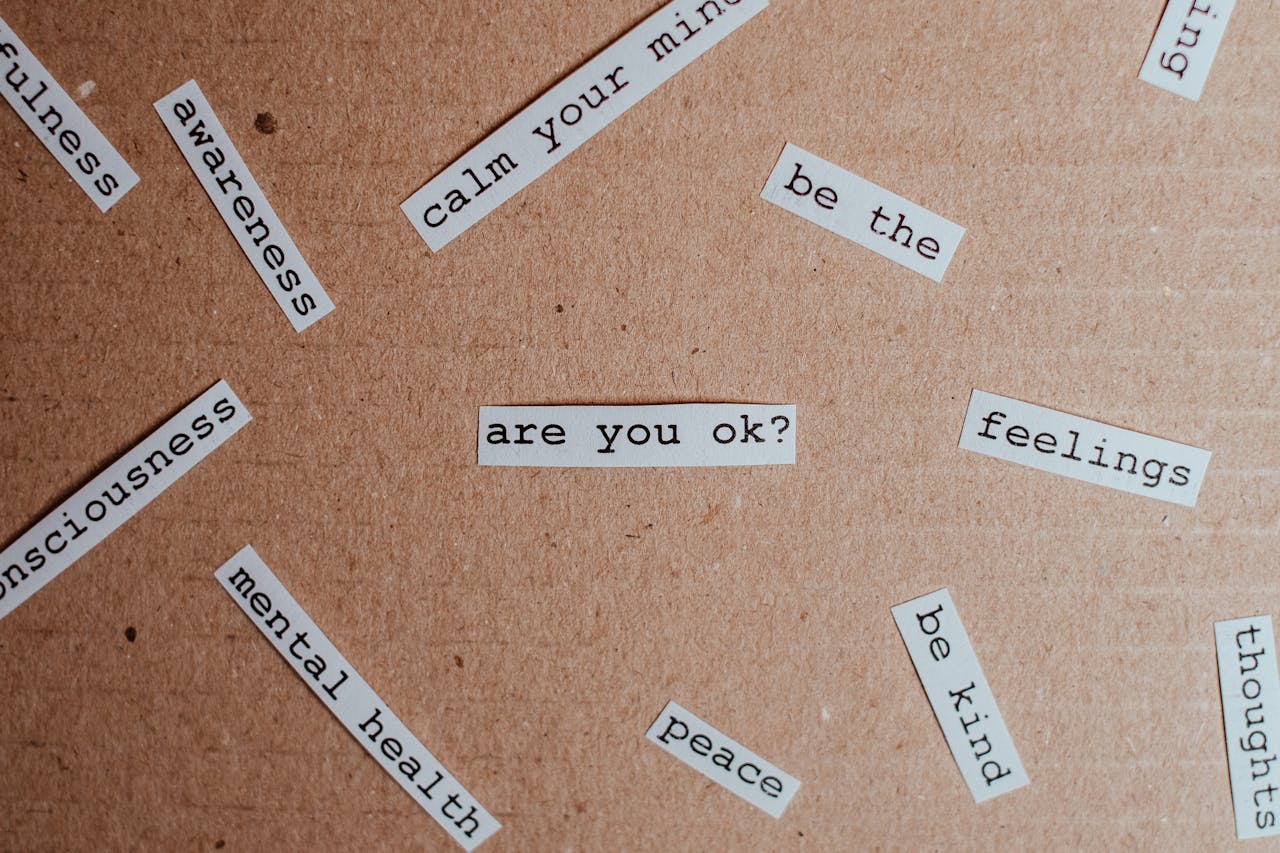Elevate Your Mental Health Today: Practical Strategies for a Happier Mind
Mental health is all about how we’re feeling on the inside – you know, emotionally, psychologically, and even socially. It’s like our personal well-being barometer. So, it’s not just about feeling happy all the time; it’s about finding a balance even when life throws curveballs at us. It’s how we handle stress, connect with others, and make decisions day-to-day. Think of it as our emotional superpower that helps us bounce back from tough times and stay on track, even when things get a bit rocky.
While professional guidance is paramount for addressing specific mental health concerns, incorporating self-care practices can significantly contribute to overall mental well-being. These recommendations are not intended to replace professional care or guidelines, but rather to complement them. By integrating these strategies into your routine, you can take proactive steps towards improving your mental health, fostering resilience, and achieving a state of mental fitness.
- Establish Social Connections
- Engage In Physical Activity
- Practice Mindfulness and Relaxation
- Be Creative and Self-Expressive (Explore Your Creative Side)
- Prioritize Self-Care and Well-Being
- Build Resilience and Coping Skills
- Seek Support and Connection
Establish Social Connections
Building strong social connections is crucial for our mental well-being. Whether it’s spending quality time with loved ones or engaging in meaningful conversations, nurturing our relationships can significantly impact our mood and overall happiness.
- Prioritize Face-to-Face Interaction: While digital communication has its place, nothing beats the power of face-to-face connections. Make it a priority to spend time with friends and family, especially those who uplift and energize you.
- Engage with Purpose: When engaging in social activities, seek out opportunities that align with your interests and values. Join clubs, volunteer organizations, or community events where you can connect with like-minded individuals and foster deeper connections based on shared passions.
- Listen with Empathy: One of the most powerful ways to cultivate social connections is by being a good listener. Practice active listening, showing genuine interest in others’ thoughts and feelings. Validate their experiences, offer support with kindness, and build trust and openness in your relationships.
- Express Gratitude: Take time to express gratitude for the people in your life who bring joy and support. Send a heartfelt thank-you note, make a phone call to catch up, or simply tell someone how much you appreciate their presence in your life. Cultivating an attitude of gratitude can strengthen your relationships and deepen your connections with others.
Engage In Physical Activity
Regular exercise is not only beneficial for our physical health but also plays a vital role in improving our mental well-being. From reducing stress to boosting mood, staying active can have profound effects on our mental state.
- Find an Activity You Enjoy: Physical activity doesn’t have to mean hitting the gym or running marathons. Find an activity that you genuinely enjoy, whether it’s dancing, hiking, swimming, or practicing yoga. When you engage in activities you love, you’re more likely to stick with them and reap the mental health benefits.
- Start Small and Build Consistency: If you’re new to exercise, start small and gradually increase your activity level over time. Aim for at least 30 minutes of moderate-intensity exercise most days of the week. Whether it’s a brisk walk around the neighborhood or a quick workout at home, consistency is key to reaping the mental health benefits of physical activity.
- Connect with Nature: Take your physical activity outdoors whenever possible to reap the additional mental health benefits of nature. Whether it’s a hike in the woods, a run along the beach, or a bike ride through the park, spending time in nature can reduce feelings of anxiety, depression, and stress while enhancing your overall sense of well-being.
Practice Mindfulness and Relaxation

Mindfulness and relaxation techniques can help calm the mind, reduce stress, and promote a sense of inner peace. By making these practices part of your everyday routine, you can boost your resilience and emotional well-being. Take time each day to practice mindfulness, whether through meditation or simply being present in the moment. Notice your thoughts and feelings without judgment, allowing yourself to fully experience the present.
- Deep Breathing Exercises: Deep breathing exercises can help activate the body’s relaxation response, calming the nervous system and reducing the production of stress hormones. Practice diaphragmatic breathing, box breathing, or other deep breathing techniques to induce a state of calm and relaxation whenever you feel stressed or anxious.
- Progressive Muscle Relaxation: Progressive muscle relaxation is a technique that involves tensing and then relaxing each muscle group in your body, systematically releasing physical tension and promoting deep relaxation. Practice this technique regularly to reduce muscle tension, alleviate stress, and improve sleep quality.
- Simple Mindfulness Exercises: Incorporate mindfulness into your daily routine with simple exercises like mindful breathing, body scans, and mindful eating. These practices can help you become more grounded, centered, and aware of the present moment, reducing anxiety and promoting relaxation.
- Create a Relaxation Ritual: Establish a regular relaxation ritual that you can incorporate into your daily or weekly routine. Whether it’s taking a warm bath with soothing essential oils or enjoying a quiet cup of tea in the morning, having a consistent relaxation practice can help you manage stress and maintain mental balance.
Be Creative and Self-Expressive (Explore Your Creative Side)
Engaging in creative activities allows us to express ourselves, explore our emotions, and find joy in the process. Whether it’s painting, writing, or trying out a new recipe, nurturing our creativity can be a powerful tool for enhancing mental health. Dedicate time to activities that spark your creativity and bring you fulfillment. Allow yourself to experiment and embrace the process without worrying about perfection.
- Journaling for Self-Reflection: Keeping a journal is a powerful tool for self-reflection and introspection. Take some time each day to write down your thoughts, feelings, and experiences, allowing yourself to explore your inner world and gain insights into your emotions and behaviors.
- Creative Problem-Solving: Approach challenges and obstacles in your life with a creative mindset, seeking innovative solutions and thinking outside the box. Embrace uncertainty and embrace failure as opportunities for growth and learning, rather than setbacks.
- Collaborative Creativity: Seek out opportunities for collaborative creativity, whether it’s joining a creative writing group, participating in a community art project, or collaborating with friends on a musical performance. Connecting with others through creative collaboration can foster a sense of belonging and camaraderie while sparking new ideas and inspiration.
- Embracing Imperfection: Let go of perfectionism and embrace the imperfections in your creative endeavors. Understand that creativity is a journey of exploration and experimentation, and that mistakes and failures are an integral part of the creative process. Celebrate your uniqueness and authenticity, allowing yourself to express your true self without fear of judgment or criticism.
Prioritize Self-Care and Well-Being
Self-care is essential for maintaining balance and resilience in our lives. By prioritizing our own needs and practicing self-compassion, we can better cope with stress and nurture our mental health.
- Daily Reflection and Gratitude: Start each day by reflecting on three things you’re grateful for and three things you’ve accomplished. Cultivating a sense of gratitude can shift your perspective and enhance your overall well-being.
- Setting Boundaries: Establish clear boundaries in your personal and professional life to protect your time, energy, and emotional well-being. Learn to say no to activities or commitments that drain you and prioritize activities that bring you joy and fulfillment.
- Mindful Eating: Pay attention to your eating habits and cultivate a healthy relationship with food. Eat mindfully, savoring each bite and paying attention to your body’s hunger and fullness cues. Choose nourishing foods that fuel your body and provide you with the energy you need to thrive.
- Quality Sleep: Prioritize quality sleep by establishing a relaxing bedtime routine and creating a sleep-friendly environment. Aim for seven to nine hours of sleep each night, allowing your body and mind to rest and rejuvenate. Avoid caffeine and electronic devices before bedtime, opting instead for calming activities like reading or listening to soothing music.
Build Resilience and Coping Skills
Life is full of challenges and setbacks, but by building resilience and developing coping skills, we can navigate adversity with greater ease. Learning to bounce back from setbacks and cultivate a positive mindset can empower us to overcome obstacles and thrive. Remember pain is Inevitable but suffering is optional.
- Embrace Challenges: Instead of viewing challenges as obstacles, see them as opportunities for growth and learning. Approach difficulties with a positive mindset and focus on solutions rather than dwelling on problems.
- Stay flexible: Be open to change and adapt to new situations as they arise. Focus on what you can control and let go of what you cannot.
Seek Support and Connection

Finally, remember that you don’t have to face mental health challenges alone. Seeking support from friends, family, or mental health professionals can provide valuable resources and guidance on your journey to better mental health. You deserve to have someone in your corner, cheering you on and helping you through difficult times.
- Join Support Groups or Communities: Consider joining support groups or communities where you can connect with others who may be experiencing similar challenges or struggles. Whether it’s an online support group, a local community organization, or a peer-led discussion group, finding a supportive community can provide a sense of belonging and solidarity. Engage in open and honest conversations, share your experiences, and offer support to others who may be going through similar difficulties.
- Seek Professional Help: If you’re struggling with your mental health or finding it challenging to cope with life’s stressors, don’t hesitate to seek professional help. Reach out to a licensed therapist, counselor, or mental health professional who can provide guidance, support, and evidence-based treatment options. Therapy can offer a safe and confidential space to explore your thoughts and emotions, learn coping skills, and develop strategies for managing stress and improving your well-being.
- Utilize Helplines and Hotlines: When things get tough, remember there are helplines and hotlines ready to offer you support right away. Whether you’re experiencing a mental health crisis, feeling overwhelmed with emotions, or simply need someone to talk to, trained professionals are available 24/7 to provide support, guidance, and resources. Save helpline numbers in your phone or keep them easily accessible for moments when you need immediate support or assistance.
Bottom Line:
Improving mental health is an ongoing journey that requires dedication and self-care. By incorporating the strategies outlined in this guide into your daily life, you can take proactive steps towards greater well-being and happiness. Remember to be patient with yourself and celebrate your progress along the way. Here’s to a happier and healthier mind!




Leave a Reply